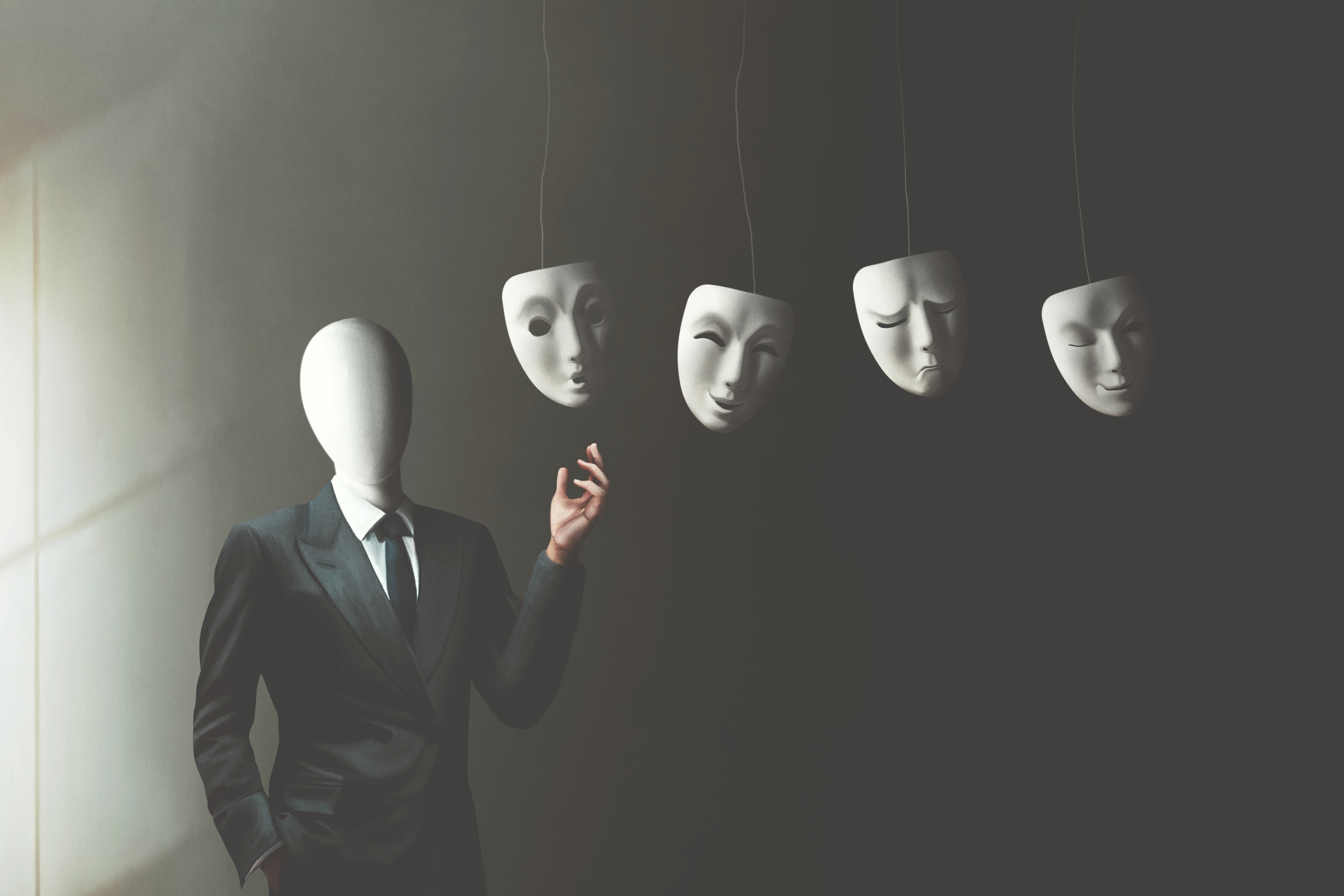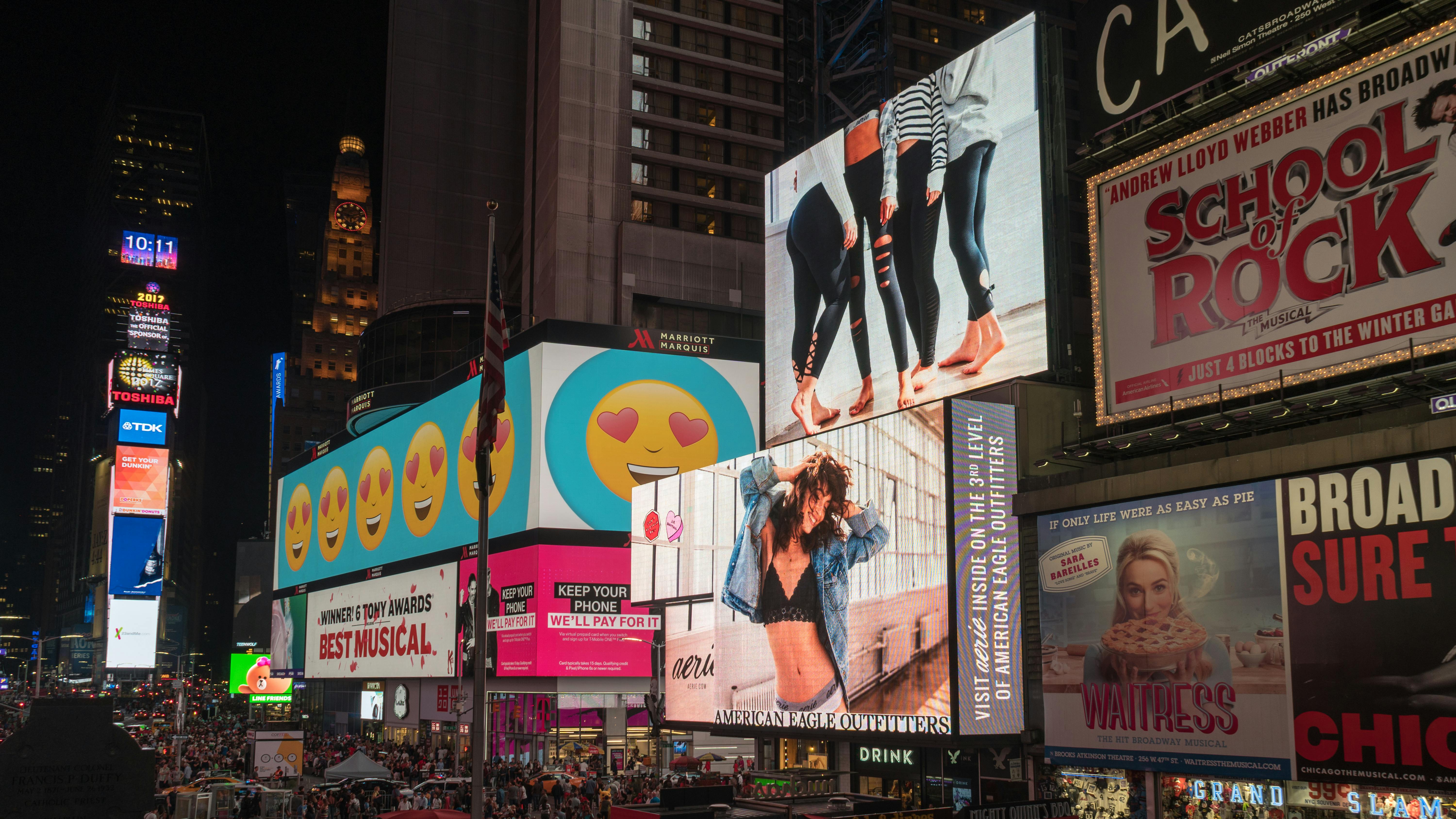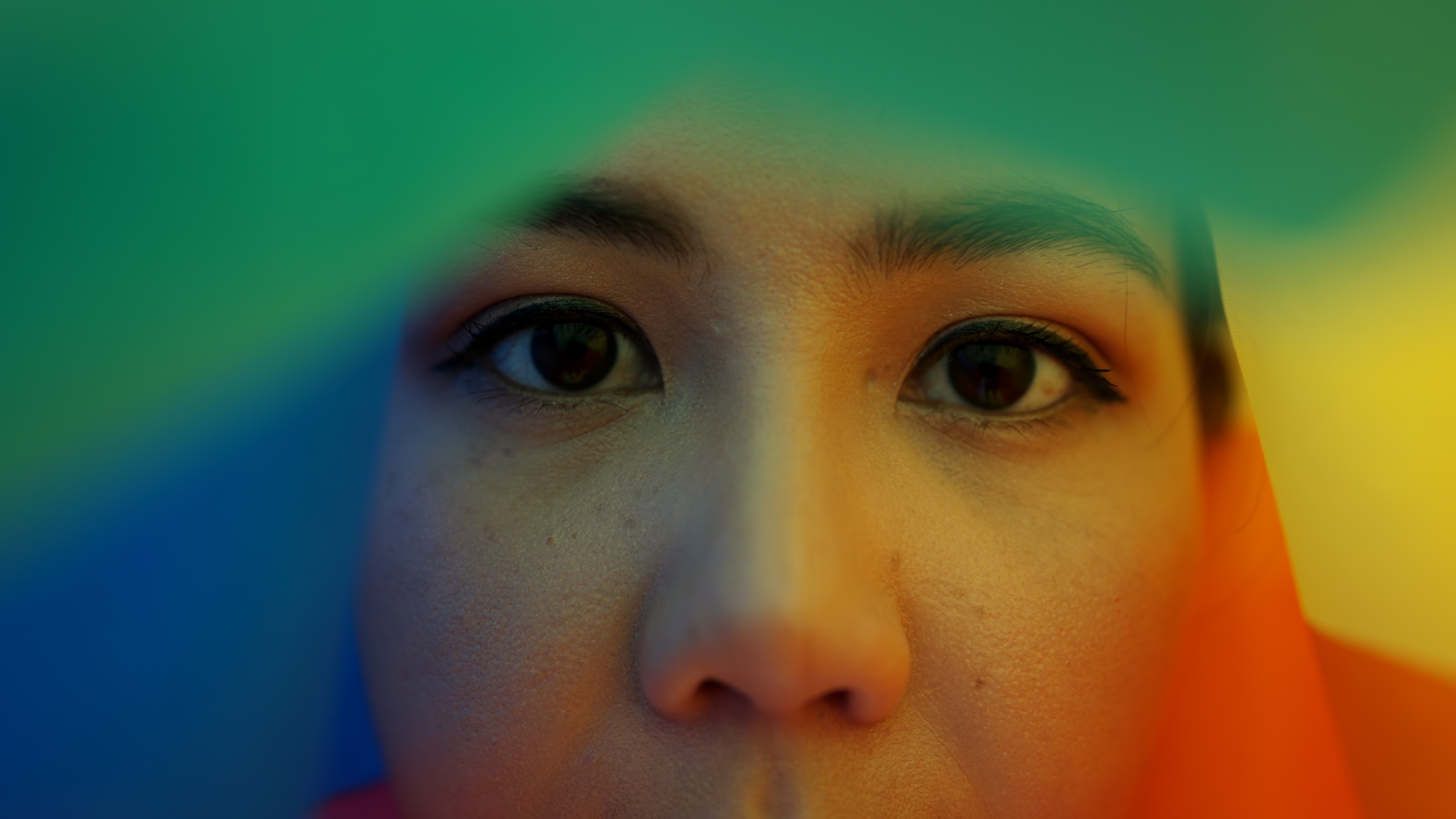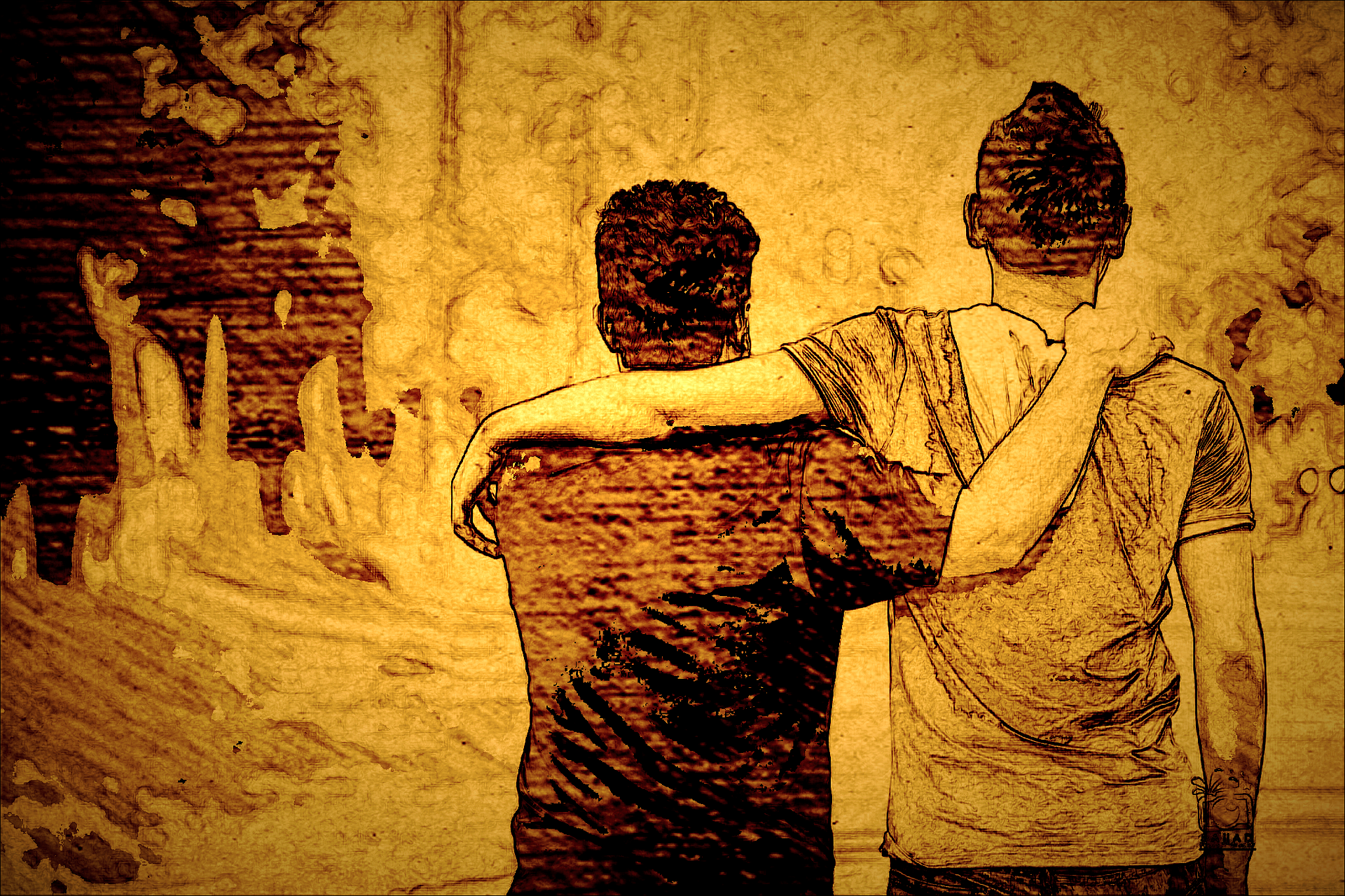What is prejudice? It is a really complex question. It is a multifaceted phenomenon, and I see my work as contributing one small, hopefully helpful element in our broader understanding of it, but I do not want to make any claims to be giving an exhaustive analysis of it. When we think about different forms of prejudice, traditionally we might identify three different elements in them. Sometimes prejudice can involve an irrational or ill‑founded belief. I think Michele Moody‑Adams has this nice phrase that it is a particular conception of reality.
About prejudice
Associate Professor in Philosophy
- Prejudice is sustained not only by beliefs and emotions but also by entrenched habits of attention that filter what we notice or ignore.
- Because those attentional patterns are conditioned by media, spaces and other people, prejudice is simultaneously individual and societal.
- We can still be held responsible for unconscious biases, since we choose many of the influences that shape our habitual focus.
- Lasting change depends on shifting shared cues through inclusive education, diverse personal relationships and similar interventions so that different people and evidence become salient to us all.
What is prejudice?
Prejudice is best conceptualized as a phenomenon that can be supported by a whole range of mental states that will include beliefs, habits, emotions and also attentional dispositions. We can recognize prejudice in part by its effects or by how it functions, and then recognize that there is this diversity in the processes which support it.

© Shutterstock
Prejudice can also involve a kind of affective element. It does not always seem like it is enough to just capture it in terms of what you believe but also how you feel about certain groups. Perhaps that can involve, for instance, disgust, revulsion or something similar to that. Thirdly, prejudice can seem like it often involves a behavioral element of some kind. It is not enough that you just have these attitudes. Maybe they are manifesting in your behavior. Sometimes it might be hard to definitively say if you do or do not have a certain belief, but we can concretely notice that you are behaving in certain ways. I want to introduce another element, which is that prejudice can reside in how we prioritize and order information: disproportionately focusing on a particular subset of beliefs, relying on them when you are performing certain inferences or focusing on a subset of evidence that you have about a certain group. Focusing only on the negative things and not the positive things can be a really important form that prejudice takes that is not captured by those other three elements.
Attention's role in prejudice
Habits of attention contribute to prejudice in a whole range of ways. Perhaps most simply, it could be that the prejudiced beliefs you already have shape what you attend to going forward. It might be that believing, for instance, that girls are going to be less good at math, you are then paying more attention to the performance of boys in your math class in a way that leads you to neglect the ways in which, actually, the girls might be performing quite well. Yet, it is more complex than that, because sometimes you might have the pattern of attention without having the particular belief state. You could have somebody who would disavow that belief that boys are likely to perform better at math, but put them in the classroom, and they might still be attending disproportionately to the positive performance of the boys in a way that leads them to form inaccurate downstream beliefs — but also in ways which might lead them to behave in problematic ways.
 © Shutterstock
© Shutterstock
Social or individual prejudice
One of the big advantages of this way of thinking about prejudice is, in some ways, it almost collapses the distinction between the individual and the environment. What you attend to is in no way just up to you. It also depends on, at a very boring, brute physical level, the space that you are in.
 © Pexels
© Pexels
If you have big billboards around you with adverts on them that are presenting certain groups in certain ways — for instance, very sexualized images of women — then, of course, you are going to be attending to the sexualized properties of women. That is not something we need to blame you for, but it is really important to recognize that that is a pattern that is emerging in how you attend and that can become calcified. It is then going to shape what things you attend to downstream. You develop habits of attention that are really hard to break. In some ways, it is going to be a controversial element of the account, because often we think that prejudice or bias is something that we blame somebody for. Once we recognize that it can reside in patterns of attention, those things are not always directly at the behest of the individual; they cannot directly shape them, even though they may be able to do other things which shape their dispositions at a more general level. Actually, I think that is a really helpful element of the account; these questions about responsibility can sometimes throw us off from being adequately able to recognize the phenomenon as it occurs. When we think about prejudice in terms of attention, it is a really societal phenomenon. We do not attend just on our own. Our attentional habits are shaped by other people and develop in coordination with other people. Prejudice at this attention level is something that arises socially, though we can also describe the role of the individual within that.
Are we responsible?
One question that is very natural to ask is if we are not aware even of these prejudices, can we be responsible for them? Questions about responsibility are so complex that part of me wants to say, I want to leave some of that to the ethicists, and we can give them a ring and get them to come in and help us resolve some of this. I do think there are ways in which we can be responsible for it. You might notice that there are all sorts of other contexts in which we hold people responsible for things that they were not aware of — that happens legally and criminally.
 © Shutterstock
© Shutterstock
There is a certain degree of luck involved in if you hit somebody in a car, whether or not they survive, but that might have an impact on what we hold you responsible for afterwards. Also, I think the individual has an important role to play in shaping their habits of attention, thinking about what things they are exposing themselves to that are changing how they attend downstream. It can sound a bit moralizing, but we need to think critically about the ways in which the media that we absorb and engage with is shaping the ways in which we attend beyond that. I think we can hold the individual responsible at some level, even if we do not think that they are in a position to always notice or control each individual distribution of their attention.
Blame and prejudice
I sometimes feel wary of the ways in which the discussion can get a little trapped by this question of whether it is legitimate to blame somebody for the prejudices that they have, because in doing that, we can sometimes seem to center the perspective of the person to whom we are attributing prejudice rather than just focusing on the downstream impact it is having on the group who are subject to that prejudice. Sometimes I feel impatient with it. I do not mind if you blame people or not. Could we get on and think about the ways in which this particular prejudice is making my life harder, or other people's lives harder? That said, I do think that those questions are important, and I think that they are complicated by our increasing understanding of the complexity of the mind — the ways in which it does a lot of things that are not under our direct voluntary control, the ways in which what we think of as our identity and our selfhood is emergent from some of those processes, which it is hard for us to directly control. These questions about blame in the context of implicit bias are going to come together with a bigger reckoning with our sense of self in light of our increasing understanding of our mind and how it operates, as well as how we re‑identify who we are and what we are responsible for in that quite complex, changing landscape.
Ignorance and prejudice
Charles Mills, the philosopher, who died a couple of years ago, describes very nicely this phenomenon of white ignorance, whereby in a racially divided society like the United States, white people can afford to be ignorant of many aspects of the lives of the black people whom they live alongside. Black people, on the other hand, cannot afford to be ignorant in the same way. The practical stakes of being ignorant in that way could be very high. If you think, for instance, of the experience that young black people can have engaging with police officers, it is really important that they are aware of the risks to them of that process. On the other hand, it is perfectly possible for white people in that society to grow up with an ignorance of the ways in which their fellow people living in the society with them are subject to risks that they do not have to engage with. That phenomenon can expand beyond white ignorance. You can recognize the ways in which there can be gender‑based forms of ignorance, that there can be aspects of women's lives and experience that men, in virtue of enjoying perhaps greater social power, do not have to engage. They can afford to remain ignorant of them. Not only can dominant groups in this situation afford to remain ignorant; actually, it can be positively helpful for them to remain ignorant. It might be helpful because it is more comfortable. It is difficult to acknowledge that other people are having a harder time than you, that perhaps you are benefiting from the ways in which they are having a harder time. Also, it can be strategically important in terms of shaping the direction of resources that you not pay attention to certain things.
Power‑based prejudice
I was really struck when I was pregnant that it is just not known whether lots of drugs are safe for pregnancy, because nobody has done the research that you would need to do in order to find that out. That is maybe an example of something that, in each individual case of not testing a particular drug in pregnancy, there is a good reason why that is not done. It might be resource intensive in certain ways. However, it contributes to this broader shaping of our medical knowledge that prioritizes and centers male bodies at the expense of fully having a more nuanced working out of female bodies, pregnancy and the significance of drugs for that. Equally, if you think of the much worse outcomes that African American women in the States experience in childbirth relative to their white compatriots, that is another example of the ways in which we do not know enough, and that knowledge is leading to worse outcomes for one group than another. There are probably ways in which that is to the benefit of the dominant group, that more resources are being poured into the resolution of one set of problems that concern them rather than another set of problems. We could use the term power‑based ignorance to describe all of these different forms.
 © Shutterstock
© Shutterstock
Robin Dembroff has written about the phenomenon of straight ignorance, where straight people can be ignorant of the experience of their queer counterparts in a way that does not flip in the other direction. We could use that term power‑based ignorance to describe a broad range of different kinds of ignorance that can arise that track these patterns of power.
Becoming less prejudiced
The million‑dollar question is, can we become less prejudiced? That question has two elements. Can we theoretically identify routes that might take us to being less prejudiced, and then practically, how feasible is it to implement that? I want to be tentatively optimistic here and also nod very significantly to work in social psychology, which investigates this question much more directly. I think there is evidence that we can, in small ways, shape our minds as individuals and that, socially, there are interventions we can make that can change how prejudiced people are. It is tentatively encouraging that, for instance, if you look at measures of implicit bias, they have reduced a lot towards lesbian, gay and bisexual people over the last 40 or 50 years, though there is also some reason to be concerned that that might be being undone at the moment. It is really interesting to try to figure out why that has happened with that particular form of implicit bias in a way that has not been replicated, for instance, in terms of racial biases.
 © Shutterstock
© Shutterstock
The biggest thing we know is that intimate contact with other people — knowing other people, loving other people, having them as your friends and neighbors — is probably the single biggest thing that reduces prejudice. Of course, that is not something that we can easily script. Who you are friends with and who you love is itself shaped by power structures that are already in place.
Shifting attention to reduce prejudice
Can we become less prejudiced through attending differently? I hope so, and I think it is something that becoming aware of is really important. If you are engaged in a hiring process, thinking critically about what you are attending to in the course of doing that, whether you are attending to different properties in the case of different individuals, is really important and can potentially be helpful. Equally, it is certainly not an easy fix, especially once we recognize the ways in which the individual's attention is hostage to their environment and to other people around them. It is hard for the individual on their own to fix that. On the other hand, perhaps there is hope that if we can find ways socially of rethinking how we want to shape people's attention, that might help us. Education is a really fundamental way in which we tell children what they should find important and what they should not find important. I am heartened at the ways in which the curriculum has changed in Britain, at least over the last 30 years, to direct our children's attention towards minoritized groups in ways that I think are really positive. Children's books are another huge way in which we are pointing out to them what expectations they should have about the kinds of families that they encounter in society, what properties of people should be salient to them. I am hopeful that there has been a move towards more inclusive children's books that are thinking more critically around that. The people who are doing that probably are not thinking explicitly in terms of attentional patterns and dispositions, and I hope it might be helpful if that was a way of conceptualizing what is happening there that people had at their disposal. Still, I think there is some hope.
Misconceptions about prejudice
Perhaps the biggest misconception about prejudice that I would like people to reconsider is the idea that it resides in the content of what you believe — that if you do not endorse a particular belief, then you are not prejudiced.
 © Pixabay
© Pixabay
It can also really matter what you attend to and what you prioritize. There can be room for you to not have beliefs which have explicit prejudicial content but nonetheless for there to be prejudiced ways of engaging with the world and with other people — by virtue of what things you are attending to and what information you are prioritizing and then what things you are ignoring and not coming to know.
Editor’s note: This article has been faithfully transcribed from the original interview filmed with the author, and carefully edited and proofread. Edit date: 2025
Discover more about
prejudice
Munton, J. (2025). Priority and Prejudice: The Epistemology of Salience and Attention. Oxford University Press.
Munton, J. (2021). Prejudice as the misattribution of salience. Analytic Philosophy, 64(1), 1–19.
Munton, J. (2022). Bias in a biased system: Visual perceptual prejudice. In N. Ballantyne & D. Dunning (Eds.), Reason, bias and inquiry: The crossroads of epistemology and psychology (pp. 177–202). Oxford University Press.
Munton, J. (2019). Beyond accuracy: Epistemic flaws with statistical generalizations. Philosophical Issues, 29(1), 228–240.
Munton, J. (2019). Perceptual skill and social structure. Philosophy and Phenomenological Research, 99(1), 131–161.